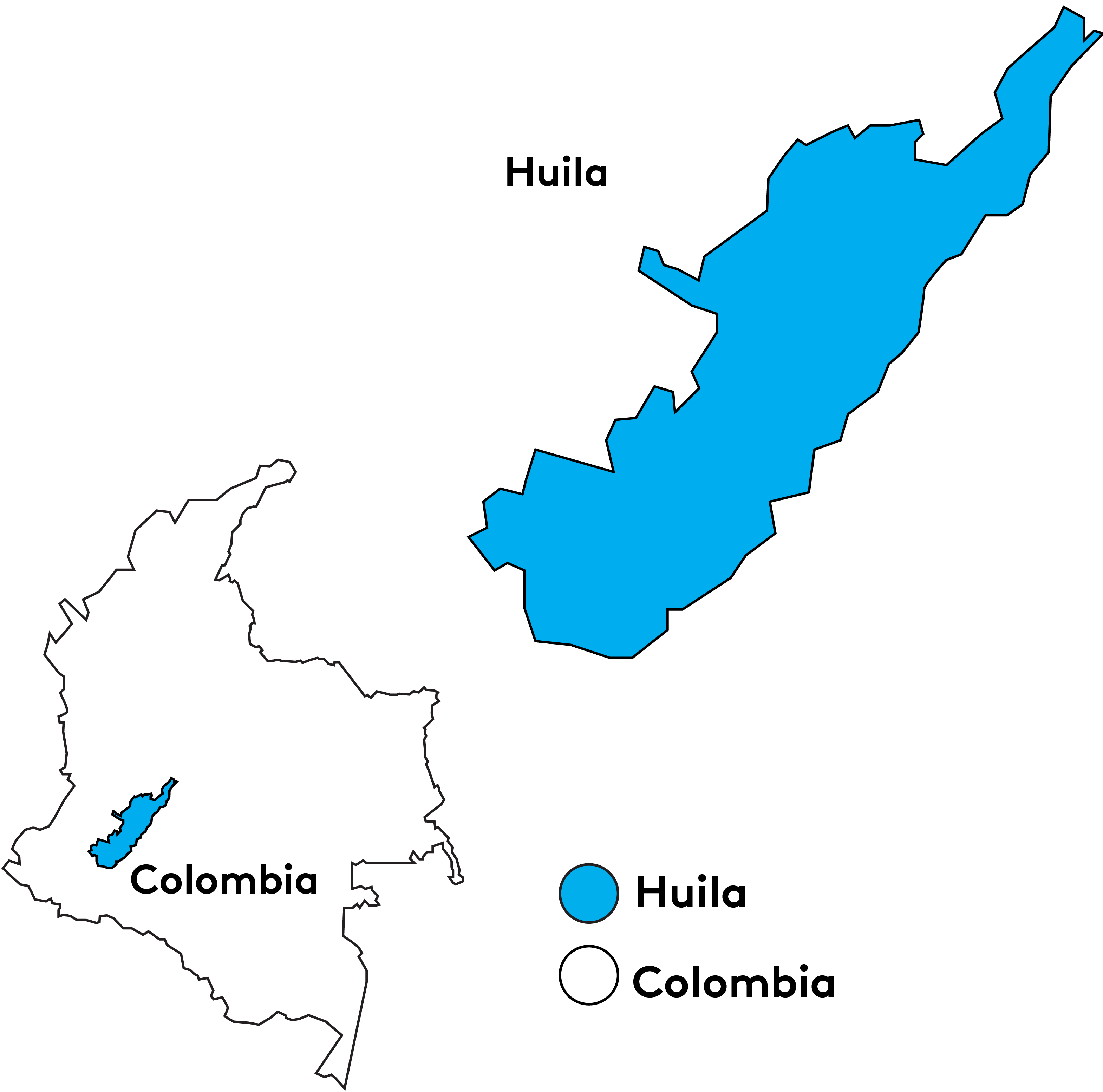Santa Maria is named for the municipality of Santa Maria along the northwestern of the department of Huila where this coffee was grown. Three smallholders contributed to this one-of-a-kind coffee blend: Javier Trujillo of El Lote farm, Alvaro Perez of El Sinai, and Carmelo Velandia of Los Nogales.
Finca El Lote is located in the Los Pinos neighborhood of Santa Maria municipality at 1325masl. Javier grows Caturra, Castillo, and Colombia varieties of coffee and dry ferments the coffee for 40 hours before fully washing it and drying it in a parabolic dryer for 18-24 days.
Finca Sinai is located in the Santa Lucia neighborhood. Alvaro grows Caturra and Colombia coffee varieties at 1330masl. Coffee is dry fermented for 32 hours before being fully washed and dried on parabolic drying beds for 20-25 days. Finca Sinai’s
Finca Los Nogales, meaning walnut trees, is located in the neighborhood of Cisne, which means “swan.” Carmelo grows Caturra and Castillo coffee varieties at 1320masl and dry ferments coffee for 30 hours before washing it and drying it for 18-24 days in a parabolic dryer.
The climate on all three farms is windy with temperatures between 17° and 23° C. The complementary profiles of the coffee from these three farms lent themselves to be combined into this special microlot, which reflects the work of producers as individuals and as a collective involved in the shared success of the coffee producers of the Huila region.
